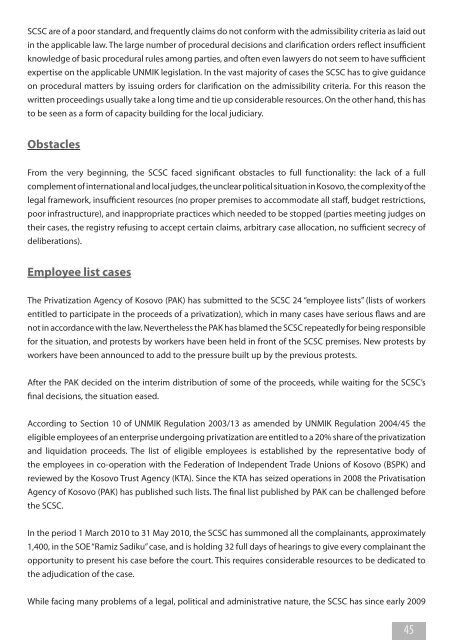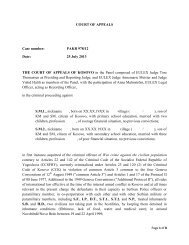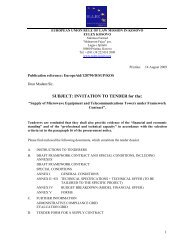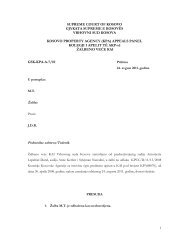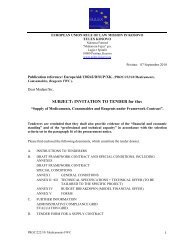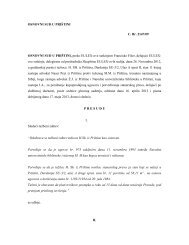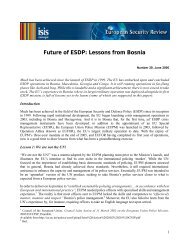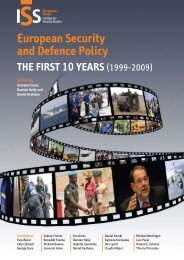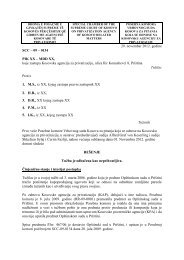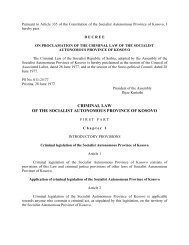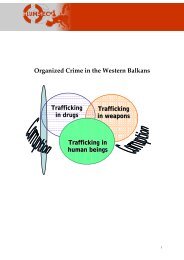English - Eulex
English - Eulex
English - Eulex
You also want an ePaper? Increase the reach of your titles
YUMPU automatically turns print PDFs into web optimized ePapers that Google loves.
SCSC are of a poor standard, and frequently claims do not conform with the admissibility criteria as laid out<br />
in the applicable law. The large number of procedural decisions and clarification orders reflect insufficient<br />
knowledge of basic procedural rules among parties, and often even lawyers do not seem to have sufficient<br />
expertise on the applicable UNMIK legislation. In the vast majority of cases the SCSC has to give guidance<br />
on procedural matters by issuing orders for clarification on the admissibility criteria. For this reason the<br />
written proceedings usually take a long time and tie up considerable resources. On the other hand, this has<br />
to be seen as a form of capacity building for the local judiciary.<br />
Obstacles<br />
From the very beginning, the SCSC faced significant obstacles to full functionality: the lack of a full<br />
complement of international and local judges, the unclear political situation in Kosovo, the complexity of the<br />
legal framework, insufficient resources (no proper premises to accommodate all staff, budget restrictions,<br />
poor infrastructure), and inappropriate practices which needed to be stopped (parties meeting judges on<br />
their cases, the registry refusing to accept certain claims, arbitrary case allocation, no sufficient secrecy of<br />
deliberations).<br />
Employee list cases<br />
The Privatization Agency of Kosovo (PAK) has submitted to the SCSC 24 “employee lists” (lists of workers<br />
entitled to participate in the proceeds of a privatization), which in many cases have serious flaws and are<br />
not in accordance with the law. Nevertheless the PAK has blamed the SCSC repeatedly for being responsible<br />
for the situation, and protests by workers have been held in front of the SCSC premises. New protests by<br />
workers have been announced to add to the pressure built up by the previous protests.<br />
After the PAK decided on the interim distribution of some of the proceeds, while waiting for the SCSC’s<br />
final decisions, the situation eased.<br />
According to Section 10 of UNMIK Regulation 2003/13 as amended by UNMIK Regulation 2004/45 the<br />
eligible employees of an enterprise undergoing privatization are entitled to a 20% share of the privatization<br />
and liquidation proceeds. The list of eligible employees is established by the representative body of<br />
the employees in co-operation with the Federation of Independent Trade Unions of Kosovo (BSPK) and<br />
reviewed by the Kosovo Trust Agency (KTA). Since the KTA has seized operations in 2008 the Privatisation<br />
Agency of Kosovo (PAK) has published such lists. The final list published by PAK can be challenged before<br />
the SCSC.<br />
In the period 1 March 2010 to 31 May 2010, the SCSC has summoned all the complainants, approximately<br />
1,400, in the SOE “Ramiz Sadiku” case, and is holding 32 full days of hearings to give every complainant the<br />
opportunity to present his case before the court. This requires considerable resources to be dedicated to<br />
the adjudication of the case.<br />
While facing many problems of a legal, political and administrative nature, the SCSC has since early 2009<br />
45


